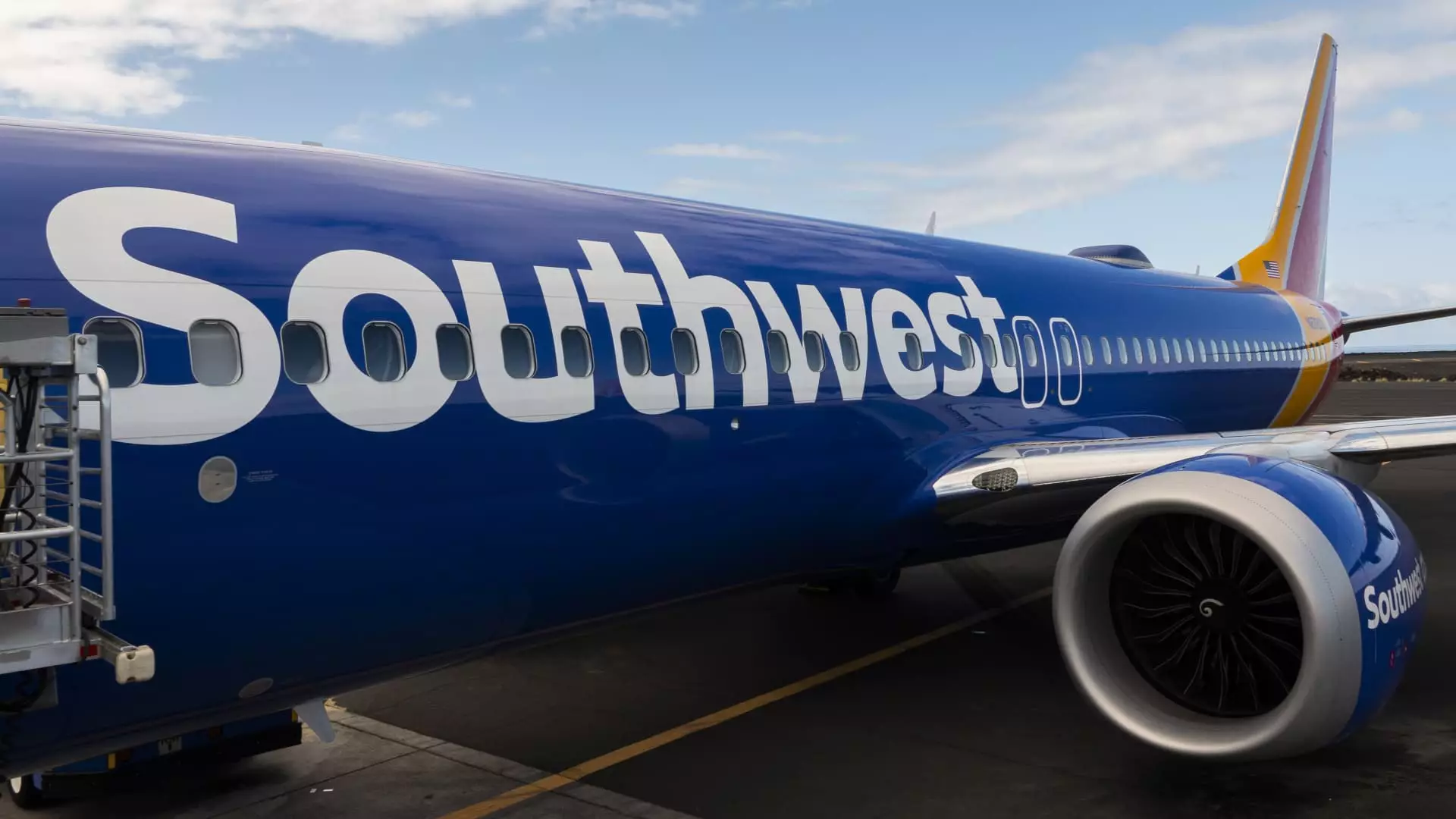Southwest Airlines saw a sharp decline in its shares this week, dropping by approximately 4% in premarket trading after cutting its revenue forecast for the second quarter. The airline cited changing booking patterns as the main reason for the downgrade. Revenue per available seat mile, a key metric for airlines, is expected to decrease by 4% to 4.5% in the second quarter compared to last year. This is a significant change from the previous estimate of a 1.5% to 3.5% decline.
In addition to the revenue forecast cut, Southwest also announced that its unit expenses, excluding fuel, would be up by as much as 7.5% compared to the previous year. This comes as a surprise as the airline had originally expected no change in expenses. The capacity of Southwest Airlines is also set to rise by as much as 9%, a stark difference from the previously anticipated flat growth.
The airline industry as a whole is facing challenges with higher costs and increased capacity, leading to pressure on fares and profits. Southwest Airlines, in particular, has been struggling to adapt its revenue management to evolving booking patterns in the current environment. This has resulted in a reduction in its revenue per available seat mile forecast for the second quarter.
On top of its financial struggles, Southwest Airlines is also facing pressure from activist investors, specifically hedge fund Elliott Management. The fund has been pushing for a change in leadership, calling for the replacement of CEO Bob Jordan and Chairman Gary Kelly. Elliott Management believes that the company is underperforming and in need of a change at the top.
To address its challenges, Southwest Airlines is considering implementing revenue initiatives such as seating assignments or premium seating. These changes would mark a significant departure from the airline’s traditional business model, which has been successful for the better part of the last five decades. CEO Bob Jordan has expressed confidence in the company’s ability to adapt to changing customer needs and industry dynamics.
Southwest Airlines is facing a turbulent period with a decline in revenue forecast, increased expenses, and activist investor pressure. The airline will need to make strategic decisions to navigate these challenges and ensure its long-term sustainability in the competitive airline industry.


Leave a Reply